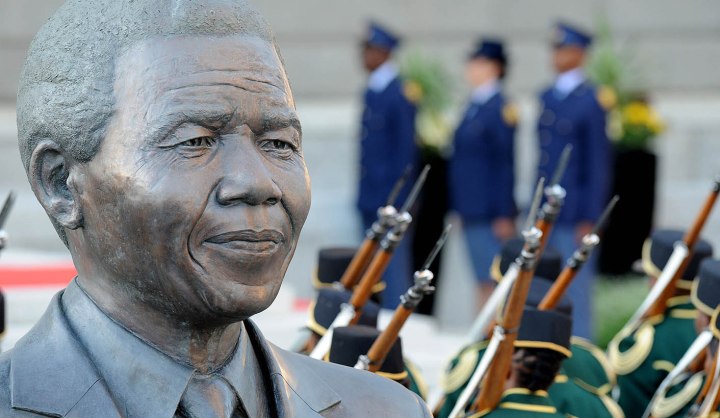South Africa
ISS Today: Can SA’s Parliament redeem itself as an oversight mechanism?

How Parliament conducts its State Capture inquiry will be a test for future responses to corruption. By Judith February for ISS TODAY.
First published by ISS Today
South Africa’s President Cyril Ramaphosa has inherited a country in disarray. Public finances are a mess and it will take time to strengthen democratic institutions and entrench a culture of accountability. Corruption, excess and former president Jacob Zuma’s breaches of the Constitution have diminished trust in institutions and elected representatives.
Parliament, too, became a site for the ruling African National Congress’s (ANC) own factional battles. This was evident in the way Speaker of Parliament Baleka Mbete protected Zuma during Question Time sessions and during the Nkandla investigation. In this environment, the former president and his executive were spared exacting oversight, and ANC MPs protected their own positions.
Parliament’s mandate is clearly set out in the constitution. In terms of s55, Parliament must “initiate and prepare legislation and the National Assembly must provide for mechanisms… to maintain oversight of the exercise of national executive authority, including the implementation of legislation; and any organ of state”. Parliament is constitutionally charged with exercising oversight to ensure “accountability, responsiveness and openness” in government.
Dealing with corruption meaningfully in Parliament became nigh impossible in the past decade. However the political sands have shifted dramatically since the ANC’s conference in December 2017, and Parliament has renewed vigour regarding “State Capture” in particular. With the unexpected postponement of the State of the Nation address last week, Parliament has not officially opened – but its committee work continues.
The State Capture inquiry started in mid-October 2017 and resumed in late January after the parliamentary recess. Given that Zuma announced the commission of inquiry into State Capture last December, the way in which this committee continues its work will be interesting.
House chairperson Cedric Frolick’s written instruction to the designated committees – home affairs, mineral resources, public enterprises and transport – were to engage with the allegations of State Capture “within the parameters of the Assembly Rules governing the business of committees and consistent with the constitutionally enshrined oversight function of Parliament”.
Parliament’s inquiry doesn’t have the force of a commission of inquiry, but
It was the public protector, backed by the courts, who ensured Zuma paid back almost R8-million that was irregularly spent on his private residence.
Political change can provide a strange impetus. Parliament, in its State Capture inquiry, seems to have found some of its voice – well, some ANC MPs have. Some rather damning evidence has been heard in relation to corporate governance at Eskom.
In late November 2017, Public Enterprises Minister Lynne Brown was grilled regarding appointments at the power utility. As early as August last year she questioned the committee’s purpose. The evidence specifically in relation to Eskom saw Brown come under fire and be called “captured” – to which she vehemently objected.
Brown has ended up in cross-examination-like tussles with Pravin Gordhan – a former Cabinet colleague and now
But whatever the politicians say, the parliamentary inquiry will continue its work. More and more information and evidence about malfeasance at the Public Rail Agency of South Africa (Prasa) and Eskom will no doubt enter the public domain. This can only be a good thing.
Of course, more will be revealed by the commission of inquiry into State Capture led by Deputy Chief Justice Raymond Zondo. This will ensure that the recommendations of former public protector Thuli Madonsela’s State of Capture report are drawn to their logical conclusion.
With the extensive media coverage
It means monitoring institutions such as Parliament far more closely. The detailed accounts of allegations and evidence of corruption raised in Parliament must not be left unattended. It is only by ensuring accountability for those who betrayed our democracy to enrich themselves that we can ever hope to begin tackling the critical challenges of poverty, unemployment and inequality.
Judith February is a senior research consultant, ISS
File Photo: A bust of the late Nelson Mandela is seen prior to the arrival of President of South Africa Cyril Ramaphosa to deliver his for the State of the Nation address at Parliament, Cape Town, 16 February 2018. EPA-EFE/NASIEF MANIE / POOL


















 Become an Insider
Become an Insider